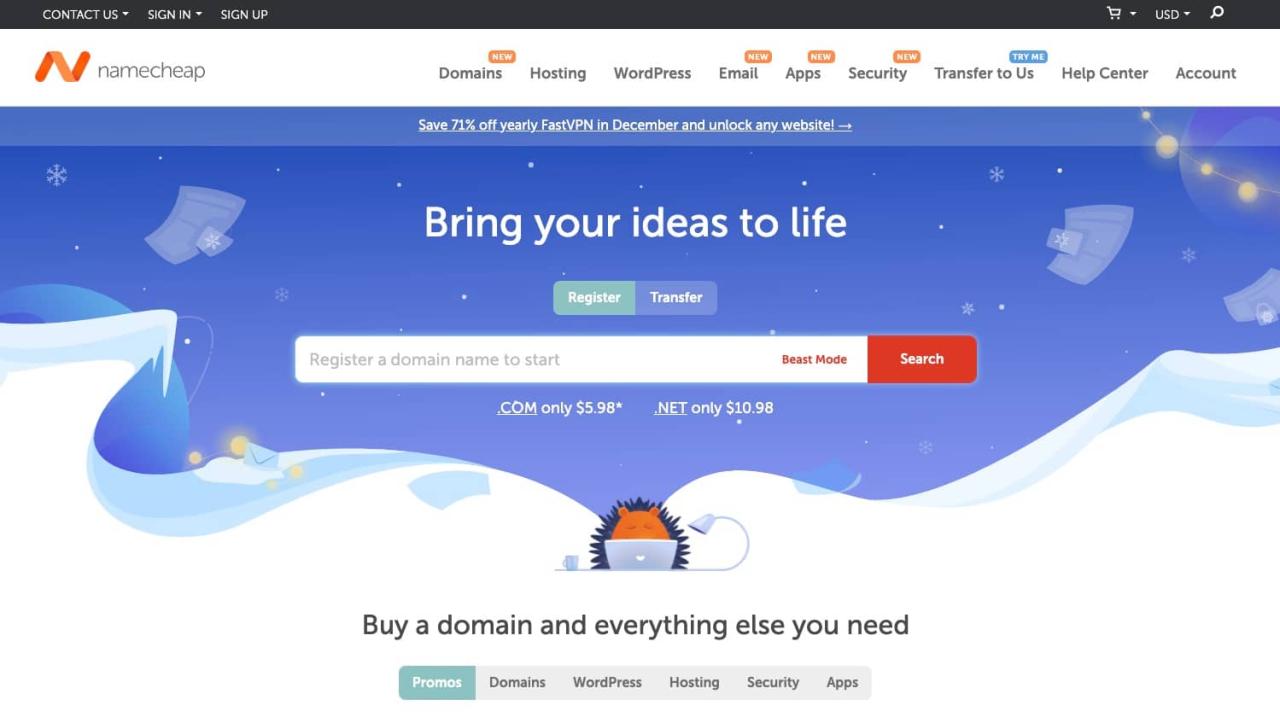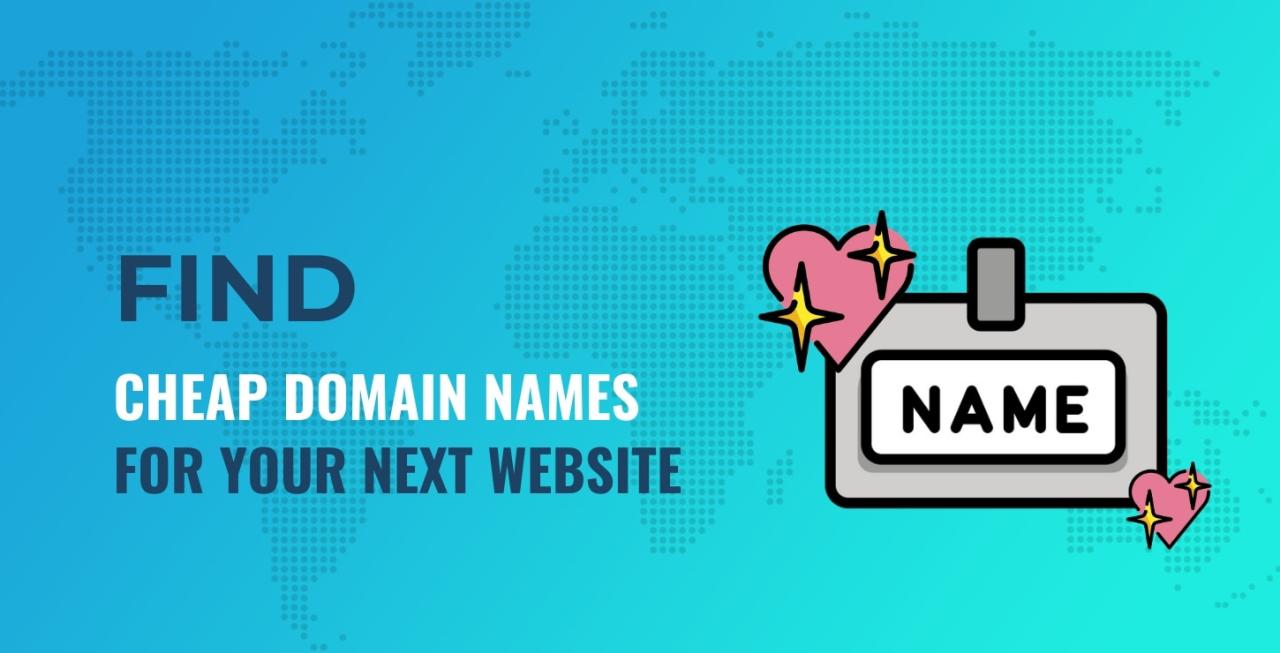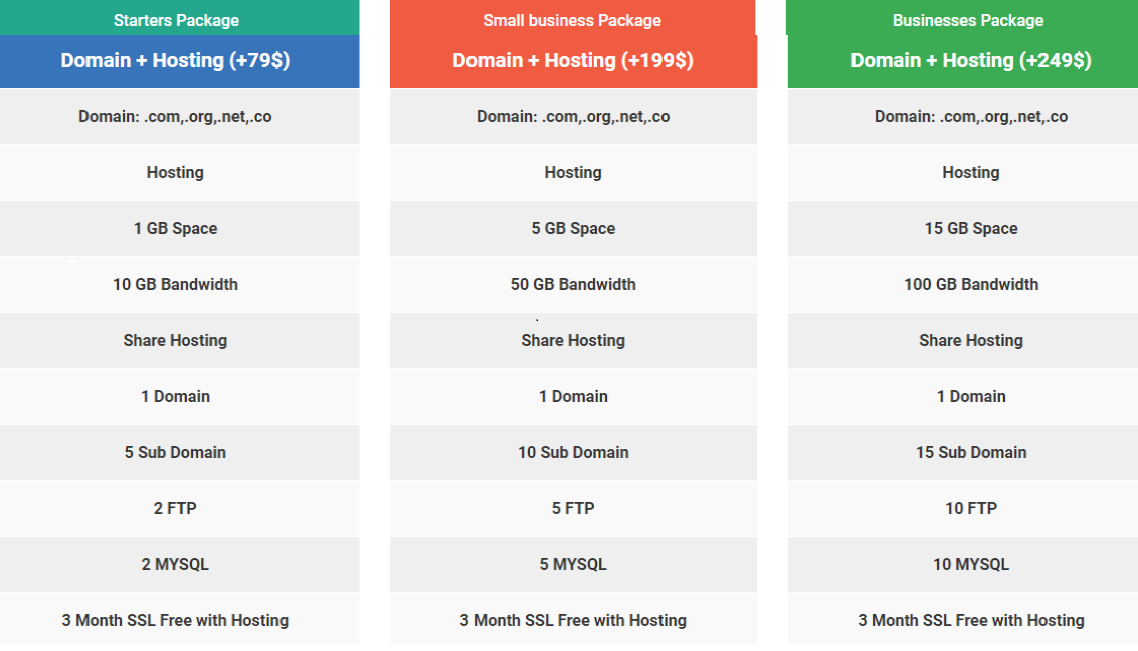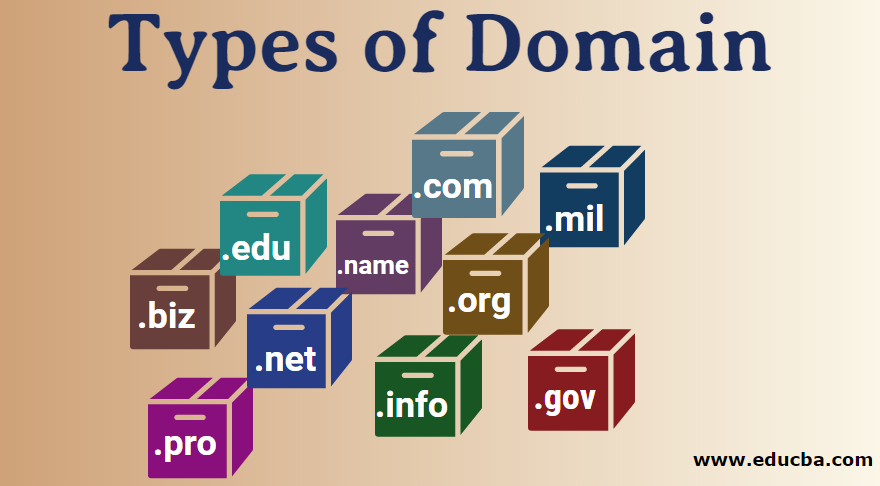Cheap web domains are the gateway to establishing your online presence, but navigating the world of domain pricing and registration can feel overwhelming. This guide demystifies the process, revealing how to find affordable domains without compromising quality. We’ll explore the factors that influence domain prices, compare reputable domain registrars, and provide practical tips for selecting, registering, and managing your domain.
From understanding the different domain extensions and their price ranges to learning how to secure a memorable and relevant domain name, we’ll cover all the essential steps for securing your digital footprint. We’ll also discuss domain privacy and security, the importance of brand consistency, and the latest trends in the domain name industry.
Understanding “Cheap” Domains
Finding a cheap domain name might seem like a great way to save money, but it’s important to understand the factors that influence domain pricing and the potential trade-offs involved. While a low price might be tempting, it’s crucial to consider the long-term implications of choosing a cheap domain.
Factors Influencing Domain Pricing
Domain pricing is influenced by several factors, including:
- Domain Extension: The extension, such as .com, .net, or .org, plays a significant role in pricing. Popular extensions like .com are generally more expensive than newer or less popular extensions.
- Domain Length: Shorter domain names are typically more expensive, as they are considered more memorable and desirable.
- Domain Age: Older domains, especially those with a history of use, can command higher prices. This is because they often have established brand recognition or search engine ranking benefits.
- Domain Popularity: High-demand domain names, especially those related to popular s or industries, tend to be more expensive.
- Registrar Pricing: Different domain registrars have varying pricing structures. Some registrars offer discounts or promotional deals, while others may charge higher fees.
Trade-offs Between Cost and Domain Quality
While cheap domains might seem appealing, they often come with certain trade-offs:
- Domain Extension: Choosing a less popular extension might save money but could affect your website’s credibility or performance. For instance, a .com domain is generally considered more trustworthy and professional than a .xyz domain.
- Domain Age: A brand-new domain might be cheap, but it lacks the history and search engine authority of an older domain. This can make it harder to establish your website’s credibility and attract traffic.
- Domain Name Quality: Cheap domains often have less desirable names that are difficult to remember or may not be relevant to your business.
Common Domain Extensions and Price Ranges
Here are some common domain extensions and their typical price ranges:
| Domain Extension | Typical Price Range |
|---|---|
| .com | $10 – $15 per year |
| .net | $10 – $15 per year |
| .org | $10 – $15 per year |
| .info | $5 – $10 per year |
| .biz | $5 – $10 per year |
| .co | $10 – $15 per year |
Domain Name Selection
Your domain name is your online identity. It’s the first impression you make on potential customers and visitors. A good domain name should be memorable, relevant, and easy to spell.
Choosing the right domain name is crucial for your website’s success. A memorable and relevant domain name can help you attract more visitors, build brand recognition, and improve your search engine ranking.
Strategies for Brainstorming Domain Name Ideas
Generating a list of potential domain names requires a strategic approach. Here are some techniques to help you brainstorm:
- Start with your business name: If you have a catchy and unique business name, consider using it as your domain name. You can also use variations of your business name, such as adding s or shortening it.
- Use s related to your industry: Including relevant s in your domain name can help people find your website more easily.
- Consider using a catchy phrase or slogan: A memorable phrase or slogan can make your domain name more appealing and easier to remember.
- Think about your target audience: What kind of language would appeal to your target audience?
- Use a domain name generator: There are many online tools that can help you generate domain name ideas.
Factors to Consider When Evaluating Potential Domain Names
Once you have a list of potential domain names, it’s time to evaluate them. Here are some factors to consider:
- Availability: Check if the domain name is available for registration.
- Relevance: Does the domain name accurately reflect your business or website’s content?
- Memorability: Is the domain name easy to remember and spell?
- Brandability: Does the domain name sound professional and trustworthy?
- Length: Aim for a domain name that is short and concise.
- Extension: While .com is the most popular extension, other extensions such as .net, .org, and .info can also be effective.
- friendliness: Choose a domain name that is easy to rank in search engines.
- Social media presence: Check if the domain name is available on social media platforms.
Domain Name Availability and Registration
Before you can claim your online space, you need to make sure the domain name you want is available. This involves checking availability and then registering it if it’s free.
Domain Name Availability Check
Domain name availability is crucial. To check if your desired domain name is available, you can use a domain registrar’s website. These websites have search tools that let you enter the domain name you want and see if it’s taken. If it’s available, you can proceed with registration.
Domain Name Registration Process
Domain name registration involves a few simple steps. Here’s a general Artikel:
- Choose a Domain Registrar: There are many domain registrars available. Some popular ones include GoDaddy, Namecheap, and Google Domains. Consider factors like price, features, and customer support when choosing a registrar.
- Search for Your Domain Name: Once you’ve chosen a registrar, use their search tool to check if your desired domain name is available. If it’s not, you’ll need to come up with an alternative.
- Complete the Registration Process: If your domain name is available, you’ll need to fill out a registration form. This usually includes your personal information, payment details, and the duration of your registration (typically one to ten years).
- Pay the Registration Fee: Domain name registration costs vary depending on the registrar, the domain extension (e.g., .com, .net, .org), and the registration period. Most registrars offer discounts for longer registration periods.
- Confirm Your Registration: After you’ve paid the registration fee, you’ll usually receive an email confirmation. This email will include details about your domain name and instructions on how to manage it.
Tips for Securing a Domain Name
Here are some tips to increase your chances of securing a domain name:
- Be Quick: Domain names, especially popular ones, can get snatched up quickly. If you’ve found a good domain name, don’t hesitate to register it.
- Consider Alternatives: If your first choice is unavailable, be creative and try different variations. For example, if “yourbusiness.com” is taken, you could try “yourbusiness.net” or “yourbusiness.org.” You could also consider adding a number or a hyphen to your domain name.
- Use Domain Name Generators: Many websites offer domain name generators. These tools can help you come up with creative and memorable domain names based on your s or brand name.
- Monitor Availability: Keep an eye on the availability of your desired domain name, even if it’s not available right now. Someone may have registered it but could be willing to sell it. You can use domain name marketplaces like GoDaddy’s Afternic or Sedo to find available domain names for sale.
Domain Name Management

Once you have a domain name, it’s essential to manage it effectively to ensure its continued operation and security. Domain name management involves various aspects, including DNS settings, renewal, and security measures.
DNS Settings
DNS settings are crucial for directing traffic to your website. They act as a phonebook for the internet, translating domain names into IP addresses that computers understand. Managing your DNS settings allows you to control how your website functions, including email routing, website redirection, and security features.
DNS settings are crucial for directing traffic to your website.
Domain Name Renewal
Domain names are not permanent possessions. They are leased for a specific period, typically one to ten years. To maintain ownership of your domain name, you need to renew it before the expiration date. Failure to do so could result in the domain name becoming available for others to register.
Protecting Your Domain Name
Domain name hijacking is a real threat. Hackers can attempt to gain control of your domain name by exploiting vulnerabilities in your account or by using social engineering tactics. To protect your domain name, consider the following best practices:
- Use a strong password and enable two-factor authentication: This makes it significantly harder for unauthorized individuals to access your account.
- Keep your contact information up-to-date: This ensures you receive important notifications and updates about your domain name.
- Monitor your domain name for any unauthorized changes: Regularly check your domain name settings and contact information to ensure they haven’t been tampered with.
- Use a domain registrar with robust security features: Look for registrars that offer features like domain name locking, which prevents unauthorized transfers, and email notifications for any changes to your account.
Benefits of Using a Domain Name Registrar with Robust Security Features
A domain registrar with robust security features offers several advantages for protecting your domain name:
- Reduced risk of hijacking: Strong security measures like domain name locking and two-factor authentication significantly reduce the risk of your domain name being hijacked.
- Peace of mind: Knowing your domain name is protected by robust security features provides peace of mind and allows you to focus on other aspects of your online presence.
- Improved reputation: A domain registrar with a strong security track record enhances your website’s reputation and builds trust with your visitors.
- Compliance with industry standards: Using a registrar that complies with industry security standards demonstrates your commitment to responsible online practices.
Domain Name Privacy and Security: Cheap Web Domain
Your domain name is more than just a web address; it’s a valuable asset that represents your online presence. Safeguarding it from potential threats is crucial, and that’s where domain privacy and security come into play. Just like you would protect your physical address and personal information, ensuring the privacy and security of your domain name is essential for protecting your brand, data, and online reputation.
Domain Privacy Protection Services
Domain privacy protection services act as a shield between your personal information and public registries. They obscure your contact details, such as your name, address, phone number, and email address, from being publicly accessible. This can be particularly important for individuals, small businesses, and anyone who wants to protect their personal information from spam, phishing attempts, and other unwanted solicitations.
- WHOIS Privacy: This is the most common type of domain privacy protection. It replaces your personal information with the registrar’s contact details, effectively hiding your identity from the public WHOIS database.
- Domain Lock: This feature prevents unauthorized changes to your domain name, such as transfers or deletions, without your explicit authorization.
- Two-Factor Authentication: This adds an extra layer of security by requiring a second authentication factor, such as a code sent to your phone or email, before making changes to your domain name settings.
Safeguarding Your Personal Information
While domain privacy protection services offer a valuable layer of security, it’s also important to take proactive steps to safeguard your personal information.
- Choose a Secure Registrar: Opt for a reputable domain registrar that offers strong security measures, including data encryption and regular security audits.
- Use Strong Passwords: Create complex and unique passwords for your domain registrar account and other online services.
- Enable Two-Factor Authentication: This is a critical step in preventing unauthorized access to your domain name settings.
- Monitor Your Domain Name: Regularly check the WHOIS database to ensure your contact information is up-to-date and that no unauthorized changes have been made.
Domain Name Alternatives
Sometimes, you might not want to pay for a domain name, or you might need a more flexible way to create an online presence. Fortunately, there are a few alternatives you can consider.
These alternatives offer a way to establish a web presence without the expense of a traditional domain name.
Subdomains
Subdomains are like extensions of your main domain. They allow you to create separate sections within your website, each with its unique address.
For example, if your main domain is “example.com,” you could create a subdomain called “blog.example.com” for your blog, or “shop.example.com” for your online store.
Subdomains are particularly useful for:
- Organizing different aspects of your website: You can separate your blog, forum, or online store from your main website.
- Testing new features or ideas: You can create a subdomain for a new project or feature and see how it performs before integrating it into your main website.
- Creating separate landing pages for different marketing campaigns: You can direct traffic from different sources to specific subdomains for targeted marketing efforts.
Subdomains are a cost-effective way to manage different parts of your website and test new ideas.
Free Domain Name Services, Cheap web domain
Free domain name services, such as Google Sites and Wix, provide you with a website address without requiring you to purchase a domain name. These services often offer pre-designed templates and tools for building your website, making it easier to create an online presence without technical expertise.
Google Sites
Google Sites is a free website builder that allows you to create simple websites without coding knowledge. It offers a range of templates and features for building basic websites, including:
- Drag-and-drop interface: Easily arrange content and elements on your website.
- Built-in templates: Choose from various pre-designed templates to quickly get started.
- Integration with Google services: Easily connect your website to Google Drive, Google Docs, and other Google services.
Wix
Wix is another popular free website builder that offers a wide range of templates and features for creating more sophisticated websites. It provides a user-friendly interface and a drag-and-drop editor, making it easy to customize your website. Wix also offers a free plan with limited features, and paid plans with more features and storage.
- Extensive template library: Choose from thousands of professionally designed templates.
- Drag-and-drop editor: Easily customize your website without coding knowledge.
- Built-in apps and integrations: Access a wide range of apps and integrations to enhance your website’s functionality.
Domain Name Marketing

Your domain name is the foundation of your online presence. It’s the first impression you make on potential customers, and it plays a crucial role in building brand recognition and driving traffic to your website. Effective domain name marketing ensures that your online identity aligns with your brand, attracting visitors and fostering trust.
Brand Consistency Across Platforms
Maintaining a consistent brand image across all platforms, including your domain name, is essential for establishing a strong and recognizable brand identity. This consistency builds trust and helps users easily identify and connect with your brand.
- Use a consistent brand name: Ensure your domain name reflects your brand name or a close variation. This avoids confusion and reinforces brand recognition. For example, a company named “Creative Solutions” should ideally have a domain name like creativesolutions.com.
- Maintain a consistent visual identity: Your website’s design, logo, and color scheme should align with your brand’s visual identity, which is also reflected in your domain name. This creates a cohesive and professional look across all platforms. For example, a tech company with a modern and minimalist aesthetic should maintain a similar style on its website and domain name.
- Use consistent messaging: Your domain name should communicate your brand’s core values and message, aligning with your website content and marketing materials. This ensures that your brand’s message is consistent and clear across all platforms. For instance, a sustainable clothing brand should use a domain name that reflects its commitment to environmental responsibility.
Promoting Your Domain Name
Once you have a strong domain name, it’s important to promote it effectively to drive traffic to your website. Here are some tips:
- Social media promotion: Share your domain name on your social media profiles and encourage followers to visit your website. You can also use social media advertising to reach a wider audience. For example, a startup can create engaging posts on platforms like Twitter and Instagram, highlighting their domain name and website features.
- Email marketing: Include your domain name in your email signature and use email campaigns to promote your website. You can also offer exclusive content or discounts to subscribers who visit your website through the provided domain name. A fashion retailer can send out email newsletters with exclusive offers, directing subscribers to their website using their domain name.
- Online advertising: Use online advertising platforms like Google Ads to promote your domain name and drive traffic to your website. You can target specific demographics and interests to reach your ideal audience. For example, a local bakery can use Google Ads to target users searching for “bakeries near me” and direct them to their website through their domain name.
- Content marketing: Create valuable and engaging content, such as blog posts, articles, and videos, that mention your domain name and encourage visitors to learn more about your brand. For instance, a travel agency can publish blog posts about popular destinations, including their website URL with their domain name, inviting readers to explore their travel packages.
Creative Domain Name Marketing Strategies
Beyond traditional marketing methods, there are creative strategies to promote your domain name and generate buzz.
- Domain name contests: Host a contest where participants have to guess your domain name or come up with creative uses for it. This can generate excitement and drive traffic to your website. For example, a software company can run a contest where participants guess their domain name, offering prizes to the winners, leading them to visit their website.
- Domain name giveaways: Offer free domain names or discounts on domain registration to attract new customers. This can be a great way to incentivize website creation and build brand awareness. A web hosting company can offer free domain names for a limited time to new customers, encouraging them to create websites and use their services.
- Domain name partnerships: Partner with other businesses or organizations that have a similar target audience and cross-promote each other’s domain names. This can help you reach a wider audience and build mutually beneficial relationships. A local coffee shop can partner with a bookstore to offer a discount to customers who visit both businesses using their respective domain names, promoting both brands.
- Domain name branding: Create a memorable and unique brand identity around your domain name. This could involve using it in your logo, marketing materials, and social media handles. For example, a technology startup can create a catchy slogan that incorporates their domain name, making it more memorable and recognizable to their target audience.
Domain Name Trends and Future Predictions
The domain name industry is constantly evolving, with new trends emerging and shaping the digital landscape. Understanding these trends is crucial for businesses and individuals alike, as they influence domain name selection, registration, and management strategies. This section explores emerging trends in the domain name industry, including the rise of new extensions, and discusses the potential impact of artificial intelligence (AI) and automation on domain name registration and management. It also provides predictions for the future of cheap domain names and their role in the digital landscape.
New Domain Extensions
The traditional .com, .net, and .org extensions have been joined by a plethora of new domain extensions, catering to specific industries, geographic locations, and interests. This expansion offers businesses and individuals more options for creating memorable and relevant domain names.
- Industry-Specific Extensions: Extensions like .tech, .shop, .app, and .design cater to specific industries, allowing businesses to create domain names that reflect their niche and enhance brand recognition. For example, a technology company might choose a .tech domain, while an online store might opt for a .shop domain.
- Geographic Extensions: Extensions like .london, .berlin, and .tokyo allow businesses to target specific geographic markets, demonstrating their local presence and relevance. This is particularly beneficial for businesses with a regional focus or those looking to expand into new markets.
- Interest-Based Extensions: Extensions like .blog, .art, and .music cater to specific interests, providing a platform for individuals and organizations to showcase their passions and expertise. For example, a blogger might choose a .blog domain, while an artist might opt for a .art domain.
The rise of new domain extensions offers several advantages:
- Increased Choice and Flexibility: Businesses and individuals have more options to choose from, allowing them to find domain names that are relevant, memorable, and available.
- Enhanced Brand Recognition: Industry-specific and geographic extensions can enhance brand recognition by clearly communicating the business’s niche or location.
- Improved Search Engine Optimization (): Domain extensions can impact by signaling to search engines the relevance and target audience of a website.
Impact of AI and Automation
AI and automation are transforming various industries, and the domain name industry is no exception. These technologies are streamlining domain name registration, management, and security, making it easier for individuals and businesses to secure and manage their online presence.
- Automated Domain Name Registration: AI-powered tools can automate domain name registration, eliminating the need for manual searches and eliminating the risk of human error. These tools can analyze available domain names based on specific criteria, such as s, industry, and availability, and suggest suitable options.
- Domain Name Management: AI and automation can manage domain names, including renewals, DNS updates, and security settings. This frees up time and resources for businesses to focus on other aspects of their online presence.
- Domain Name Security: AI can enhance domain name security by detecting and preventing malicious activities, such as phishing attempts and domain hijacking. AI-powered security solutions can monitor domain name activity and identify suspicious patterns, alerting administrators to potential threats.
Predictions for Cheap Domain Names
Cheap domain names will continue to play a crucial role in the digital landscape, providing affordable options for individuals and businesses to establish an online presence. While the rise of new domain extensions and premium domain names may increase competition, the demand for affordable options will remain strong.
- Increased Availability of Cheap Domains: As new domain extensions become available and the domain name market matures, the availability of cheap domain names is likely to increase. This will provide more options for individuals and businesses looking for affordable domain names.
- Strategic Use of Cheap Domains: Businesses may leverage cheap domain names for specific purposes, such as landing pages, marketing campaigns, or creating niche websites. This allows them to test new ideas, reach target audiences, and build brand awareness without significant investment.
- Importance of Domain Name Management: Despite the availability of cheap domain names, effective domain name management remains crucial. This includes ensuring timely renewals, protecting domain names from security threats, and optimizing them for .
Conclusive Thoughts

In today’s digital landscape, a cheap web domain is more than just an address; it’s a strategic asset that can help you build your brand, attract visitors, and establish your online authority. By following the insights and strategies Artikeld in this guide, you can confidently navigate the domain name world and find a domain that aligns with your needs and budget, paving the way for a successful online journey.
Securing a cheap web domain is a smart move for anyone looking to establish an online presence, whether it’s for a personal project or a business venture. But don’t forget about the tools that can help you build something truly unique.
If you’re interested in 3D design, you might want to check out openscad , a powerful open-source tool that lets you create complex models with code. Once you’ve got your website up and running, you can even showcase your 3D creations on your domain, making it a truly personalized experience for visitors.




